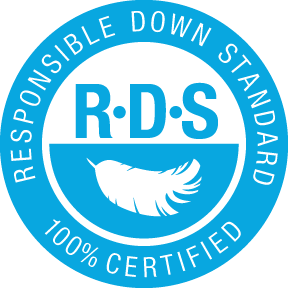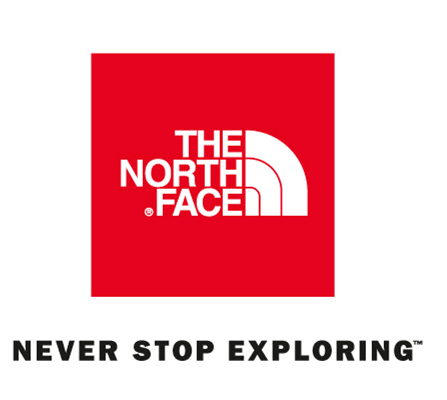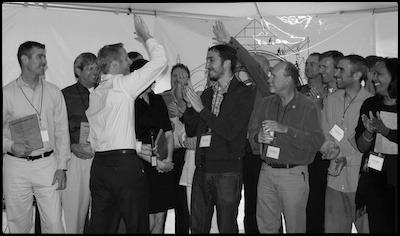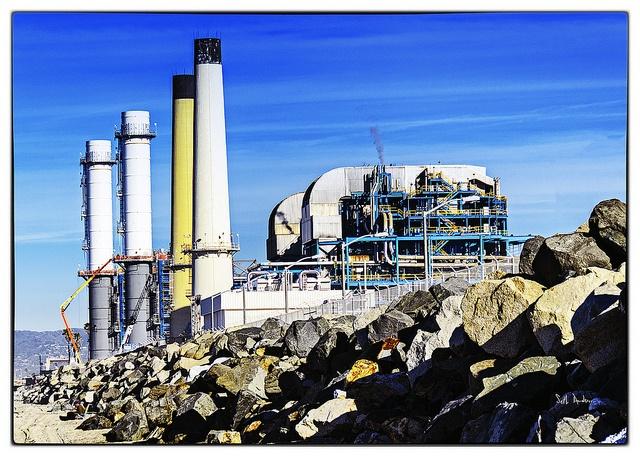Stories & Beer: The State of the Sharing Economy


The “sharing economy” describes a type of business built on the sharing of resources – allowing customers to access goods when needed. Think AirBnb or Zipcar. While sharing goods has always been a common practice among friends, family and neighbors, in recent years, the concept of sharing has moved from a community practice into a profitable business model. But is "sharing" really the right word to describe these new companies?
Now that many sharing economy companies are maturing, is sustainability still at the core of their philosophy? Is “sharing economy” still the right term to describe these companies, and have their benefits been truly triple bottom line?
TriplePundit hosted a conversation on the sharing economy with folks from AirBnB, Lyft and Yerdle on October 22nd at the Impact Hub in San Francisco! We had a great evening of discussion and answered many questions from the audience.
WATCH A RECAP OF OUR CONVERSATION RIGHT HERE:
Schedule
- 6:30 – 7:00 – beers and networking
- 7:00 – 8:00 – fireside chat and Q&A
- 8:00 – 8:30 – networking
TriplePundit's Founder, Nick Aster, led the discussion with Molly Turner, Rachel Barge and Emily Castor.
Molly Turner
Molly Turner is the Head of Civic Partnerhips at Airbnb, where she built and manages the company’s public-private partnerships program, Shared City. She partners with the Airbnb local community and their civic leaders on a variety of projects focused on sustainability, economic development, resiliency and hospitality. She also manages Airbnb’s policy research examining the business model’s various impacts on urban economics, environment and community.
Rachel Barge
Rachel Barge leads Growth for yerdle, the sharing economy startup founded by executives from Sierra Club and Walmart. Yerdle’s mission is to make it as easy to get something re-used as it is to buy it new. They’ve built an app-based marketplace where every item costs zero dollars: members give and receive thousands of goods every day, from camping tents to cameras to clothing. Previously, she was a Partner at Greenstart, a seed-stage venture firm and design studio, where she invested in 22 startups in the cleanweb and sharing economy space. Rachel is a Forbes 30 Under 30 in Energy, a Morris K Udall Scholar, and Brower Youth Award winner. She holds a B.S. in Conservation and Resource Studies and Forestry from UC Berkeley.
Emily Castor
As a member of the Lyft team since launch, Emily built Lyft’s community of drivers and passengers from the ground up. In her role as Director of Community Relations, she mobilizes Lyft’s grassroots supporters and manages outreach and accessibility initiatives nationally. She also serves as the Chair of the Sharing Economy Advisory Network for the National League of Cities. Before working in tech, Emily was a transportation policy aide on Capitol Hill, a campaign staffer, and a municipal financial advisor. She believes in the power of the sharing economy to make cities more sustainable and bring communities closer together.
M&S boosts supply chain monitoring through Labor Link


British high street stalwart Marks & Spencer (M&S) has scaled up its use of mobile technology in the supply chain to poll 64,230 workers across 46 manufacturing locations in 5 countries (China, India, Bangladesh, Sri Lanka and the UK) – exceeding its target, set a year ago, of 22,500 workers in 30 factories by more than double.
“Listening to workers in this way helps us connect the dots between quality of life issues like workplace health and safety and business issues in manufacturing, such as worker retention and productivity,” commented Fiona Sadler, M&S's head of ethical trading.
It is the first time M&S workers in these specific countries have had an anonymous channel to report on sensitive issues like working hours, and communication with their supervisors. With more detailed data, M&S says it is able to go beyond auditing to engage in a new kind of conversation with suppliers.
““With 44% of workers choosing to participate, M&S surveys are at the upper end of our average Labor Link response rate of 30-40%, and we see a higher degree of trust and scalability in anonymous mobile surveys, compared to more traditional methods of connecting with workers through interviews,” said Heather Franzese, executive director of the organization behind the Labor Link platform.
Labor Link is able to reach workers with different technology preferences, and manufacturing almost any product type. In Bangladesh, workers use basic feature phones and can access pre-recorded questions to address low literacy rates. In China, Labor Link is available through a WeChat application for workers with smartphones, giving workers the option to use the technology they prefer.
M&S intends to use the data gathered to develop training programs on Workplace Communications and align the company’s business practices with worker needs.
- In other news, M&S is installing the UK’s largest single roof mounted solar panel array on its East Midlands distribution centre in Castle Donington.The project, which is expected to be completed in early 2015, is being worked on in partnership with Amber Infrastructure. The solar PV system will span the site’s 900,000 sq ft roof and will generate over 5,000 MWh of electricity per year, enough to power 1,190 houses. The 24,272 PV panel structure will lower M&S’s carbon footprint by 48,000 tonnes over 20 years. The energy generated will be enough to make the fully automated distribution centre, which is big enough to hold 11 football pitches, close to self-sufficient during daylight hours.
Major Apparel Brands Join Forces for Responsible Down


Textile Exchange, a global nonprofit dedicated to sustainability in the apparel and textile industry, announced today that leading fashion, footwear and outdoor brands, including H&M and Eddie Bauer, will join The North Face in adopting the Responsible Down Standard (RDS) – a third-party certified animal welfare and traceability standard that upholds the ethical treatment of animals along the down and feather supply chain. The North Face initially worked with Textile Exchange and Control Union Certification, an accredited third-party certification body, to design version 1.0 of the standard, which was launched earlier this year.
Upon completion of the RDS in January 2014, The North Face gifted the standard to Textile Exchange to administer and evolve it as needed, as well as work with more brands and down suppliers to implement the standard. As part of this effort, Textile Exchange is evolving the standard through a stakeholder feedback process that includes input from brands and NGOs such as Adidas, Outdoor European Group, Outdoor Industry Association, and Four Paws.
“As more brands adopt the RDS, it will bring improved animal welfare conditions and better traceability in the down supply chain at a much larger scale than any one organization or one supply chain could accomplish alone,” said Anne Gillespie, Director of Industry Integrity of Textile Exchange.
Down and feathers that are used in apparel, bedding and home goods are traditionally sourced from geese and duck that are grown for the food industry -- and in recent years animal welfare groups have raised concerns about live-plucking and force-feeding practices found among certain suppliers. In response, Textile Exchange and its partners worked with a diverse set of stakeholders and did extensive research, including visiting the sourcing regions in remote areas of Europe and Asia, to fully understand conditions and address issues along the global down supply chain in its creation of the standard.
The RDS provides the most comprehensive, global, third-party certified animal welfare and traceability standard for down and feathers – and is available for use by any company. Additionally, the RDS goes beyond preventing practices such as force-feeding and live-plucking to also provide requirements for food and water quality, animal health and hygiene, and pest and predator control for down suppliers.
“We couldn’t be more excited to see the adoption of the RDS across the outdoor industry as well as fashion, apparel and athletic brands such as Eddie Bauer and H&M. These brands are helping lead the charge to transform the down supply chain in an entirely new way,” said Adam Mott, Director of Sustainability at The North Face. “When we set out to develop the RDS, we knew that in order to truly succeed we had to create something that was global, open and adaptable. Today we are seeing the realization of this vision – and yet it is only the beginning.”
The North Face has committed to 100 percent certified and responsibly sourced down across all product lines by 2017, and other brands have committed to introducing certified down into their products as soon as Fall 2015.
The North Face Launches Collaborative Standard for Responsible Down


Day-to-day, a rotating list of companies announce their latest efforts to set new sustainability industry standards, from game-changing initiatives such as Walmart’s Sustainability Index and Puma’s triple bottom line accounting system to a spectrum of brands broadcasting new metrics, programs or platforms that advance their corporate sustainability goals. Setting the pace for industry-leading change has become an industry standard. While this type of leadership is commendable (and necessary), it does not always guarantee systemic change. This is one important distinction between two standards recently launched by two outdoor apparel giants: Patagonia’s Traceable Down Standard and The North Face’s Responsible Down Standard.
Patagonia, which launched its new standard last November and announced that from fall 2014 forward all its down-insulated products will contain only 100 percent “traceable down,” is certainly an exemplar of all-things-good for the outdoor and apparel industry. As Patagonia has done in the past with its commitment to organic cotton and recycled polyester, the company hopes its new down traceability standard will “inspire other companies to look closely at their own down supply chains and utilize the model.”
This is all well and good. Models are important – though when are models not enough, especially when complex global supply chains are involved? Perhaps the question we can ask instead is: how can sustainable business leaders go beyond setting the pace for the race, and instead ensure that everyone running makes it to the finish line?
That’s exactly what The North Face has set out to do with the launch of version 1.0 of the Responsible Down Standard (RDS), which not only assures that the down in their products does not come from animals that have been subject to any unnecessary harm (such as force-feeding and live-plucking), but also serves as a holistic tool designed for any organization seeking to source down from ethically treated geese. Even more, The North Face has “gifted” its standard – which will be updated to reflect additional stakeholder input – to a partner organization to encourage widespread industry use.
Collaborative Design
Because of the extreme complexity – and limited transparency and traceability – of the global down supply chain, The North Face sought input from experts in animal welfare, standards development, and materials traceability and collaborated with two respected organizations to develop a standard that would address the diverse challenges of the global down supply and be a resource for the entire industry. Control Union Certifications, an accredited third-party certification body with expert knowledge of farm systems, and Textile Exchange, a global nonprofit dedicated to sustainability in the apparel and textile industry, worked with The North Face to develop the standard.
Instead of focusing only on The North Face’s supply chain, the company wanted to turn the standard into something that the industry could adapt and companies could use to fit their own complex supply chain realities. That is why upon launching an initial version of the standard earlier this year, The North Face “gifted” ownership of the RDS to Textile Exchange, granting the organization full rights to distribute and update the RDS as it sees fit.
"We are giving the Responsible Down Standard to the public in order to provide a holistic tool for any organization seeking to source down more responsibly. Our hope is that the collective use of the RDS will effectively promote positive animal welfare conditions and traceability in the down supply chain at a much larger scale than we could accomplish alone,” said Adam Mott, Director of Sustainability at The North Face.Open Source-Like Iteration
Similar to the open source nature of previous tools shared to advance sustainability in the apparel industry – such as the Outdoor Industry Association’s Eco Index and Nike’s Materials Sustainability Index, which were adapted by the Sustainable Apparel Coalition to develop the first version of the Higg Index – the RDS hopes to reach broad consensus and take an entire industry’s ethical sourcing of down to the next level.
Under its ownership of the RDS, Textile Exchange will conduct a rapid-review process where it will gather real-use feedback and field data from a range of users, industry partners and stakeholders, with the goal to release the next version of the RDS in 2015.
“We look forward to building on [this] foundation…to continue to drive sustainable change in the outdoor and textiles industry,” said Anne Gillespie, Director of Industry Integrity at Textile Exchange.
Beyond Apparel
Through its partnership with the Textile Exchange, The North Face hopes the new standard will influence brands beyond the outdoor and apparel industry, such as furniture, bedding and other manufacturers that consume about 99 percent of the world’s down feathers. According to a report released by the European Outdoor Group (EOG), outdoor brands account for less than one percent of global down use.
Time will tell if this “gift” becomes a catalyst for system-wide industry collaboration, innovation, and progress. Here’s hoping it does, and that other sustainable brands are inspired to do the same and move beyond simply setting standards to convening thought leadership and facilitationg action that drives industry level change.
Photo Essay: How Workplaces Reflect Company Goals


By Todd Burns
A new report from the World Green Building Council (WGBC) and Jones Lang LaSalle, titled Health, wellbeing and productivity in offices: The next chapter for green building unearths the connection between green workplaces and employee productivity, provides “overwhelming evidence” that indoor air quality, thermal comfort, access to natural light and other elements of green office design make employees not only feel better, but also more productive.
Following are a series of projects completed by JLL for businesses across the U.S. These images illustrate how each company’s unique workplace reflects its sustainability and employee productivity goals. Click the first image after the jump to open the gallery.
[gallery columns="4" ids="195749,195750,195751,195752,195753,195754,195755,195756"]
Images courtesy of JLL
Todd Burns is the President of JLL’s Project and Development Services and General Contracting units. He is responsible for business development, relationship management for the firm’s clients seeking project management services, and ensures that the firm’s clients receive outstanding performance from the organization. In addition to running many different major projects for our clients, Todd is recognized for his ability to achieve significant savings for clients while building effective teams.
Vermont Prison Becomes a Recycling and Composting Trailblazer


We spend so much time here at TriplePundit talking about how companies and universities are becoming more sustainable, it is easy to forget the sustainability agenda is going on everywhere, and yes, that includes government. To that end, more prisons are making moves to become more environmentally responsible. The latest is the Northwest State Corrections Facility in Swanton, Vermont. Recently the women’s prison, which incarcerates over 200 prisoners, announced it had become compliant with the state’s 2012 solid waste and recycling law.
Considering the depressing statistic that almost one in 100 American adults is behind bars, there is plenty of work to do on this front. From deliveries to food to water consumption, these facilities, operating 24/7 just as a small town does, provide plenty of opportunities to reduce waste and save money. Washington State, for example, partners with one of its state universities to implement recycling and sustainability programs within its correctional facilities. So what exactly is going on in this corner of New England?
Citing diminishing landfill space, Vermont’s legislature passed Act 148, “Universal Recycling of Solid Waste” law two years ago. The law has set a timeline for recyclable materials to be sorted by homes and businesses, while all organic waste must be sent to composting facilities by summer 2015. Vermont is the first state in the U.S. to ban food scraps, pre-and post-consumer, from entering municipal landfills.
According to a Vermont government press release, the process appeared relatively simple. New containers and sorting systems collected all metals, plastics and glass while other containers were set up for food scraps. That food waste is in turn collected by a local company, Green Mountain Compost, which has its roots in collecting waste from Ben and Jerry’s Ice Cream. Green Mountain has 10 acres of land where the eventual compost is sold to residents and businesses. Northwest State Corrections Facility reached its waste diversion goal one year early, and the state will replicate the sorting system to the other prisons throughout Vermont.
No word on the involvement of the actual involvement of the prisoners with Vermont’s recycling and composting initiatives. Assumedly their role is to make sure the right recyclables go into the correct bins, but there are some opportunities for jobs and skills training here. New Mexico, for example, is testing out a program that will train inmates to churn old wooden pallets into toys; shredding old towels and robes into stuffing for stuffed animals is another project under consideration. The stubborn fact is that landfill space is disappearing everywhere—and the size of the U.S. prison system makes it just one more role player in managing our resources wisely.
After a year in the Middle East and Latin America, Leon Kaye is based in California again. Follow him on Instagram and Twitter. Other thoughts of his are on his site, greengopost.com.
Image credit: Michael Letour
How to Motivate Your Team Towards B Corp Certification


This is the eleventh in a weekly series of excerpts from the new book The B Corp Handbook: How to Use Business as a Force for Good (Berrett-Koehler Publishers, October 13, 2014). Click here to read the rest of the series.
Welcome to week two of the six-week, turbocharged Quick Start Guide to becoming a Certified B Corporation.
As a quick refresher, last week was focused on using the B Impact Assessment to establish a baseline of your company’s overall social and environmental performance and to create momentum before engaging others in the process. This week is focused on starting to engage others and motivating your team.
Week two : Engage your team
Time Estimate: 90 minutesOBJECTIVE: The objective during week two is to identify coworkers who may be interested in helping you use your business as a force for good. During this week you will have a chance to get different people involved.
END RESULT: An informal working group to help you update your B Impact Report with more accurate information.
1. Set up a summit with key internal stakeholders
The first step to securing early buy-in and building project momentum is to organize a larger meeting with the key people in your company. The invite list for this meeting might include, for example, your CEO, CFO, COO, sustainability director, marketing director, human resources manager or building manager. If you are in the manufacturing or wholesale sectors, you may wish to include key individuals from the product design, sourcing, and supply chain divisions. You want the decision makers in the room to get everyone up to speed. This will help you build momentum as the project moves forward
2. Explain the objectives and benefits
Explain what you are trying to achieve, what you think success would look like, and how this project will benefit the company. For example, you could say, “There is a big opportunity to use our business as a force for good, and we need your help figuring out how to drive our company toward this vision.” It can help to tailor your presentation based on who is attending the meeting, because certain objectives, metrics of success, and benefits will appeal to particular executives. For example:
- The CEO wants to attract and retain the best talent.
- The CFO wants to attract investors and/or save money.
- Human resources wants to motivate and engage employees.
- The marketing team may want to generate press, join a national ad campaign or benefit from a trusted third-party standard.
- The sales team wants to increase consumer trust and/or create partnerships with other mission-aligned businesses.
- Operations managers want to save money through operational efficiency.
- Sustainability managers want to benchmark performance, share best practices or earn recognition.
- Everyone wants a network with high-performing peers.
3. Share the assessment process and results
Explain that you have already kick-started your company’s journey by completing a baseline and generating a preliminary score. Share what you have learned through the B Impact Report, the best practice examples and any relevant case studies. Invite a discussion about the opportunities for the company. What matters most to different individuals? What matters most to the team? What are the biggest strengths and weaknesses?
4. Identify a core project team
Although there may be a wide variety of internal stakeholders at this meeting, you should try to identify a core project team that can help you dig into the details, create an improvement plan and implement any changes. This project team may or may not include your management team. Line managers, associates, interns and even board members can be a huge support in helping to turn ideas into action.
5. Set clear next steps
Set up a meeting with your core project team. The goal of this meeting will be to start moving forward with the data collection and implementation process.
6. Start discussing the B Corp legal framework
Discuss with key board members, legal counsel, and investors why it is important to maintain the company’s mission over the long term. B Lab has compiled a great set of materials to help you answer questions that your investors or board members are likely to ask.
Ryan's Tip: When creating a project team, choose passion over seniority. For example, a highly motivated associate can be a more effective teammate than an uninspired CFO. Although you want senior-level buy-in, this does not mean that every senior executive needs to help with project execution.
Coming next week: Week Three: Create an Action Plan
Image credit: B Lab
Ryan Honeyman is a sustainability consultant, executive coach, keynote speaker, and author of The B Corp Handbook: How to Use Business as a Force for Good. Ryan helps businesses save money, improve employee satisfaction, and increase brand value by helping them maximize the value of their sustainability efforts, including helping companies certify and thrive as B Corps. His clients include Ben & Jerry’s, Klean Kanteen, Nutiva, McEvoy Ranch, Opticos Design, CleanWell, Exygy, and the Filene Research Institute.
To get exclusive updates and free resources about the B Corp movement, sign up for Ryan’s monthly newsletter. You can also visit honeymanconsulting.com or follow Ryan on Twitter:@honeymanconsult.
Why Don't More Businesses Donate Excess Food?


Editor's Note: This summer, Tamanna Mohapatra, a master's student in Columbia University's Sustainability Management Program, took a ride with City Harvest and got an up-close look at food waste and hunger in New York City. This is the second post in a two-part feature detailing her experience. In case you missed it, you can read the first post here.
By Tamanna Mohapatra
A sales lady at La Bergamote, a French bakery located in Midtown Manhattan at 52nd Street and 10th Avenue, was very reluctant to talk about their food waste. The lady, who preferred anonymity, mentioned they take leftovers home.
Anna Sloane, a young sales girl in her twenties from Brooklyn, New York, was closing shop at one of the many stores of the famous Le Pain Quotidien café when quizzed about the remaining pastries in the café’s display window. She said she felt bad about the food that had to be thrown out every evening. “I try to take it with me and distribute it in my neighborhood or on the way home on the train” she said. Le Pain Quotidien reached out to us to let us know that their official policy is to donate every day:
@triplepundit Hello. All our NYC stores are proudly donating to @CityHarvest on a daily basis. More info avail. here: http://t.co/7NGtUUFyH8
— Le Pain Quotidien US (@LePainQuotidien) October 21, 2014
Josh Ramos, the night manager at the famous vegan restaurant Blossom in the heart of Chelsea at 20th Street and 9th Avenue, said of their food waste, “We typically don’t have a lot of food leftover as we try and plan all our meals in advance. Also vegan cooking uses a lot of oil, so we can’t even compost our food scraps.”
Though the reasons vary for restaurants and stores choosing not to donate their leftovers, the main cause is a “misunderstanding of how food liability works.” This is still the No. 1 reason quoted by everyone working with food waste.
Racine Rodriguez, the manager for food sourcing at City Harvest said, “The biggest concern donors have is being held liable for their donations. When adding on new donors, City Harvest will visit and train donors on what it is we can and cannot accept to ensure donors understand they will not be held liable for the donations. We assume liability through the Good Samaritan Law, a federal law.”
The reality is that food donors are protected from liability both by the federal government and New York state. The applicable law at the federal level is called the Bill Emerson Good Samaritan Food Donation Act. It was signed by President Bill Clinton in 1996 with the hope of encouraging donation of food and grocery products to nonprofit organizations for distribution to individuals in need. The New York-specific law that helps promote food donation, but is relatively unknown, is New York State Law: Enacted 1981, Article 4-D, Section 71-2. It “holds harmless” the donor of perishable and non-perishable food to a nonprofit.
Why donate food?
Besides the financial and social benefits, preventing food waste has enormous benefits for the environment. Natural resources are expended at every step of the food production cycle – growing, transporting, processing, storing, cooking and even disposing. Each of these activities has associated and high environmental costs, such as energy and water consumption and greenhouse gas emissions.
In 2006, the EPA estimated that 13 percent of annual greenhouse gas production across the nation came from the production of food. The Natural Resources Defense Council says wasted food eats up a quarter of all freshwater consumed in the U.S., along with 4 percent of oil, while producing 23 percent of the nation's methane emissions. Additionally, agriculture occupies vast expanses of land, and fertilizers and pesticides are responsible for creating environmental nightmares like the Gulf of Mexico’s gigantic dead zones.
“Every year, through uneaten food, we waste 70 times the amount of oil that gushed into the Gulf of Mexico during the three months of the Deep-water Horizon spill,” writes Jonathan Bloom in "American Wasteland."
According to PlaNYC, Mayor Bloomberg’s comprehensive sustainability plan for New York City, food waste accounts for the largest solid waste going into landfills. It comprises one-third of the city’s more than 20,000 tons of daily refuse. Landfills are the second largest human-related source of methane emissions, and rotting food causes the majority of environmentally destructive methane.
Even with City Harvest food rescue operations increasing by 15 percent each year, there are plenty of food providers that throw food directly into the trash. PlaNYC statistics reveal, “New York City restaurants generate close to a half million tons of food waste per year – enough to fill well over a hundred subway cars per day.”
Tackling the problem in New York and beyond
To combat this problem, the city of New York introduced a program in April called the 'Food Waste Challenge' to segregate food waste from other kinds of landfill waste and make the waste available for composting. More than 100 restaurants have since signed up to participate; the goal is to divert 50 percent of restaurant's excess food from landfills.
But, in the words of Peter Lehner, executive director of the Natural Resources Defense Council, “With 40 percent of food in the U.S. going uneaten, it’s also important to start reducing the waste in the first place.”
Peter Lehner may be right. Composting and waste-to-energy facilities work best for food that can’t be eaten -- spoiled food, buffet spreads and such. The resources that go into growing, distributing and processing food all go for naught when we don't eat it.
LeanPath is a Portland-based automated tracking food waste prevention company that helps food producers calculate and reduce pre-consumer food waste. Dave Britton, LeanPath’s operations director, says, “Tackling and reducing pre-consumer food waste will help save on production, labor, environmental and disposal costs- all of which add up to zero if the food is just thrown away.”
People all over the world -- Americans no exception -- are obviously eating more than ever before. Unfortunately we're also throwing away more than ever before. Food in the U.S. has long been relatively cheap. We can go into any grocery story and immediately see piles after colorful piles of red tomatoes, green spinach and orange carrots. When we go out dining we are served increasingly huge portions. And with so much news about how obesity is on the rise, it always seems better to toss the leftover food than save it for the next day.
Fostering a culture of sustainability
An important part of addressing food waste has to do with a culture change. Nancy Hahn, director of operations of the successful San Francisco-based food rescue program Food Runners, had some wise words to share that New Yorkers stand to gain from. “America was built on the understanding that this is a land of plenty. Even the smallest town has their big chain grocery stores. This mindset is barely changing. Even with price increase, food is still relatively cheap, so why and how would there not be food waste?”
But, slowly but surely things are changing for the better. City Harvest’s success is a symbol of that change. The perception food companies have of hidden lawsuits is also shifting. Food stores are listening because ‘being green’ is now the ‘in thing.' The U.S. is trying to learn food-saving practices from the U.K., which has seen a lot more success in this matter.
Nancy Himmelfarb, a food waste and sustainability consultant based out of Chicago, attributes this, in part, to regulatory pressure and publicly-supported efforts by the U.K. not-for-profit WRAP. “Logistics and financials are key for any food waste effort to succeed, but public pressure and support create added incentives for businesses to take action.”
In that light, many who work to rescue food in New York City hope that Mayor Bloomberg’s new Food Waste Challenge will bring about a change in attitudes in addition to a reduced environmental impact.
The City Harvest truck made its final stop for that morning at one of the satellite offices for Coalition for the Homeless. We got out and unloaded dozens of bags of fresh bread onto the sidewalk. Two workers came out from the basement level of the office and started taking the bread down into the store room. We all had a serious but satisfied look on our faces, knowing that later that day close to a thousand hungry and homeless people would be fed a good meal of bread and hot soup. This was food that in another time and another day would have found its way to the landfill and would have caused a lot more harm than good. Here was sustainability as it should be -- one solution solving more than one problem.
Image credits: City Harvest via Facebook
Tamanna Mohapatra is a student pursuing her MS in Sustainability Management at Columbia University.
Report: The Chief Sustainability Officer Role is Evolving


It was not long ago that the chief sustainability officer—or whatever title that person or committee tucked into their email signature—was often someone on the outside looking in. For many companies, appointing a CSO was done to assuage some stakeholders with corporate social responsibility projects. That officer was also charged with giving a public face to the company’s efforts related to their sustainability agenda. But recent trends show that oft-heard complaint is less and less true. We see more companies, from the logistics sector to snack manufacturers, appointing a CSO, and one who has a role with teeth to get things done. They are increasing involved in day-to-day decision making within the C-suite, and their numbers are increasing annually. Now a report from the Weinreb Group shows the role of the CSO has matured even more the past few years.
And what is the biggest shift underway? These CSOs are no longer simply internal program managers—they, in the report’s words, are “strategic lynchpins” who are integral to a company’s overall strategy, often identify new opportunities for innovation and lead impactful strategic initiatives from within and outside the company.
According to the report, which profiled 36 executives tasked with this role at U.S. publicly traded companies, the role of the CSO is changing in five ways:
- Collective benefit: As just mentioned, the CSO’s role is more strategic and less tactical. Instead of focusing on environmental and social projects, he or she is part of the company’s overall plan to deliver value to both stakeholders and shareholders.
- Innovation: Yes, this word is overused by companies as they to differentiate themselves in the marketplace. But CSOs often have a more central role as companies develop projects with a goal to inspire new manufacturing processes, products and technologies. Nike is one example of how innovation, related to the more sustainable use of raw materials, is part and parcel of the company’s overall strategy.
- Stakeholder engagement: No longer a backbencher, the CSO is taking on more responsibility for communicating the company’s commitment to sustainability to external and internal stakeholders. He or she has more leeway to work with the media and the company’s customers as the role becomes more visible.
- Access across the company: Tying in to the CSO’s increased influence within the company, the CSOs surveyed in this report reported that they had access to the business across all functions and levels. It should be noted that the CSOs surveyed by Weinreb have had a long history with their organizations: on average they were with their companies for 10 years and 86 percent were hired from within instead of recruited from outside the company. So this should not be surprising since many of them are already well-known and have established credibility within the company.
- A team player: As with any c-suite position, the CSO’s success rests with his or her ability to work with multiple teams throughout the company—and in turn that allows sustainability thinking to be embedded throughout the company. As a CSO for a Silicon Valley firm told me a few years ago, the response to “how can I make my job sustainable” was as follows: “Allow me to access the data and materials to which you have access, but I need, to help our company make the right decisions—that is your sustainable job right there.”
One last trend—sustainability, is less of a man’s world. The Weinreb Group reports women now make up 42 percent of CSO positions—that is more than double the past two years. Watch for this role to evolve even more this decade. After all, the microscope companies are under thanks to social media, and the increasing demands of stakeholders, really give them no choice.
After a year in the Middle East and Latin America, Leon Kaye is based in California again. Follow him on Instagram and Twitter. Other thoughts of his are on his site, greengopost.com.
Image credit: Vlad Lazarenko
Natural Gas Detrimental to Low-Carbon Economy, Study Says


Compared to dirty coal, natural gas looks like a clean fuel. As fracking becomes more widespread, natural gas is becoming more abundant. It is often touted as a bridge fuel, serving our energy needs until technology advances in renewable energy and carbon capture and sequestration are achieved. Unfortunately, this thinking is flawed, and natural gas may in fact be a culprit holding back clean energy development and use, according to a new study that uses integrated assessment models.
“We didn’t really know how our first experiment would turn out, but we were surprised how little difference abundant gas made to total greenhouse gas emissions even though it was dramatically changing the global energy system,” said James “Jae” Edmonds, chief scientist at the Joint Global Change Research Institute of the Department of Energy’s Pacific Northwest National Laboratory (PNNL). “When we saw all five modeling teams reporting little difference in climate change, we knew we were onto something.”
The potent secret of natural gas: Fugitive methane
It is often said that natural gas produces half the carbon emissions of a coal power plant. Certainly, this is a bold step in the right direction, right? Unfortunately it is often overlooked that methane, an odorless and colorless gas, is the primary component of natural gas.
If carbon emissions seem like bad news for the climate, consider that methane is 84 time more potent than carbon dioxide in the short-term. Although it doesn't remain the atmosphere as long as carbon dioxide, it is exponentially more effective in trapping heat for two decades.
During natural gas production, processing, storage, distribution and use, methane is inevitably released into the atmosphere. Given the complexity of the natural gas supply chain in the U.S., this is a very difficult issue to measure and tackle.
Some tangible actions have been taken in recent years to address methane pollution: The Obama administration created a methane strategy that may lead to federal regulation; Colorado issued a set of air regulations (the first to address methane); and Sens. Chris Murphy (D-Ct) and Susan Collins (R-Me) introduced the 2014 Super Pollutants Act.
Displacing use of lower carbon energy
One thing that shatters the concept of natural gas as a bridge fuel is economic behavior. Given the abundance and low cost of natural, it is difficult for clean energy to compete with the fuel without policies in place. Considering that in the best case scenario, natural gas is merely a bridge fuel and doesn't provide a long-term solution to climate change, it is counterproductive from a climate perspective for it to displace the use of clean energy.
With simple supply and demand market forces at play, this trend will continue, especially since incentives for natural gas use fuel demand. U.S. subsidies for fossil fuels and nuclear are 12 times higher than for renewables. This in turn encourages natural gas technology to advance, which lowers prices and reliability, furthering the trend. More is needed to encourage the development and use of clean energy, such as policies that encourage low-carbon technologies and financial incentives, such as the Production Tax Credit for wind energy.
Low energy costs encourage greater energy use
With the increased use of fracking, the natural gas supply has expanded considerably, causing prices to drop. When energy prices are low, people are incentivized to use more.
“Abundant gas may have a lot of benefits — economic growth, local air pollution, energy security, and so on," says Haewon McJeon, an economist at the PNNL. "There’s been some hope that slowing climate change could also be one of its benefits, but that turns out not to be the case.”
Image credit: Flickr/Seth Anderson